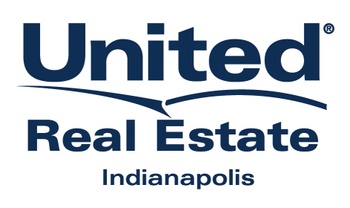Buying a home is one of the most important decisions you will ever make, and it’s essential to have the right financial conditions in place before making any moves. One crucial factor many people wonder about when buying a house is their credit score – what exactly do lenders look for in terms of solid financing? Knowing your credit score and understanding how a lender may perceive you can go a long way in preparing yourself to purchase your dream home. Here’s what you need to know about your credit score when buying a house.

What is a Credit Report, and How Can You Get Yours?
A credit report could be considered your financial story. It provides information about your accounts, such as loans or credit cards, and your payment history with them. Knowing what is in your report can help you stay on top of your credit score goals, and from a real estate standpoint, some lenders will look at this to decide if you qualify for a loan to purchase a property.
You’re entitled to one free copy of your credit report each year from each major bureau – Experian, Equifax, and TransUnion. Simply visit their online portals or call the respective customer service lines directly to request your copy – and ensure the results are accurate. If you see something on your credit report that is not correct, you can dispute that item with the credit bureau.
What is a Credit Score?
A credit score is an essential part of a person’s financial picture. It is a numerical representation of a person’s reliability when borrowing and repaying debt.
A good score can help you secure the best loan terms, interest rates, and rental contracts for apartments or homes.
Generally, your credit score will range between 300 and 850, with anything above 670 considered “good.” It’s important to make all payments on time, keep balances low relative to the limit on any cards, and try not to open too many accounts to maintain a healthy credit score.
Regularly monitoring your credit report will ensure everything is in order and allow you to take corrective action if needed. Good financial habits can make all the difference in achieving that healthy credit score.
How to Repair and Improve Your Credit Score
Building and repairing your credit score is a key element of financial health. The best way to do this is to begin by checking your credit report regularly for errors or inaccuracies and taking steps to pay off any outstanding debts so your score can start increasing.
Making sure all bills are paid on time is a great start – having a budget and setting up reminders can be effective tools to help you keep track and stay on top of your payments. Once some of the debt has been cleared, it is important to responsibly manage new accounts so that creditors know you are trustworthy and reliable.
Also, getting an overdue account with an old creditor removed from the report can be incredibly beneficial.
Credit Requirements for a Conventional Home Loan
A conventional home loan is not backed by the federal government and requires a lender to go through stricter requirements when approving applicants.
Qualifying for a conventional home loan requires a strong and reasonably long credit history. Lenders typically require two to three years of steady payment history on all your existing accounts, such as mortgages, auto loans, installment loans, or revolving credit accounts.
Your lenders will consider other attributes, such as the length of time you’ve had your credit accounts open, the size and type of payment distribution, recent additions or declines in credit lines, and even how responsible you are when handling debt balances.
Lenders generally look for a credit score of at least 620-640. This is usually accompanied by other criteria such as debt-to-income ratio, employment history, and other factors.
A credit score of 750 or higher is excellent and will allow you to get the most competitive rates when applying for a home loan.
FHA Loans for Compromised Credit Scores
If you have a challenged credit score, an FHA loan can be your best option, as the Department of Housing and Urban Development backs these loans.
These loans may accept credit scores as low as 580 with some lenders, although in most cases, you’ll need at least a 620 to qualify for such programs. The debt-to-income ratio must also be lower than 43%, though some lenders may require even less.
FHA loans are ideally suited for those who do not have a large enough down payment and cannot qualify for other loans based on their credit score.
What is a Co-Signer
Another alternative for potential homebuyers whose credit leaves room for improvement is to obtain a co-signer for your home mortgage loan.
A co-signer is someone with a good credit history who agrees to pay your loan if you are unable to do so. This can be an incredibly helpful tool for individuals who have not yet been able to establish a strong credit score on their own.
Although having a co-signer allows you access to better rates and higher loan amounts, it has drawbacks. If you default on your loan payments, the co-signer is also held responsible for any remaining debt – this could also significantly damage their credit.
Conclusion
It is important to remember that a good credit score is key when applying for home loans – whether through conventional or FHA loans or with the help of a co-signer. Try to develop good financial habits now so you can have the best chance of obtaining a loan and owning your dream home.
By researching, staying organized, and taking stock of your credit situation today, you’ll be well on your way to being approved for a loan and owning your dream home.
Talk with your local experienced real estate agent today. Your agent may have tips on how you can improve your credit, and may also have lenders they can recommend.
